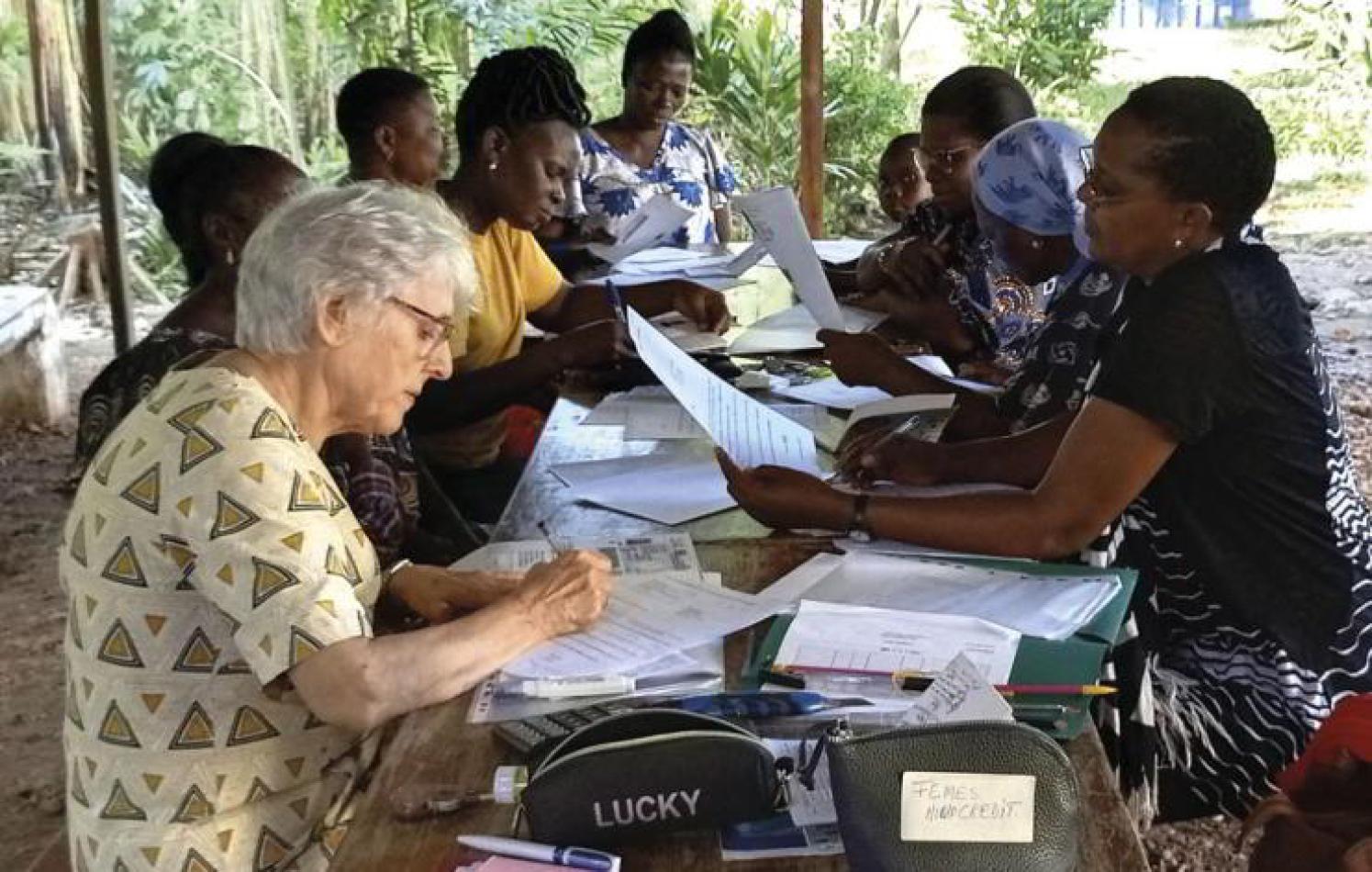Daniel Comboni
Comboni Missionaries
Institutional area
Other links
Newsletter
Saturday, September 13, 2025
Sister Magdalena Ribas Perelló, a Spanish Comboni Missionary nun, talks to us about the Dreams of Dignity microcredit project, which helps women become self-sufficient. [Comboni Missionaries]
Our Comboni Missionary community we are six Sisters from four different countries: Brazil, South Sudan, Uganda, and Spain. Our house is located on the outskirts of the capital, Lomé, where people live in shacks and tiny houses and struggle to pay the rent. The situation is precarious due to unemployment and a lack of opportunities. There is no state assistance of any kind, and those who work receive starvation wages. Fortunately, the women are strong and manage to support their families through informal trade.
In addition to organising missionary outreach initiatives, we work in social action. Supporting families means encountering all sorts of situations. Many families are broken up, and single-parent families are numerous. I remember the case of Lucie, a woman with three children who became pregnant with triplets. Her husband was a photographer, and they managed to live on his earnings. One day, her husband came home, took all his things, and told Lucie he wasn’t ready to have more children. He abandoned her. I met Lucie months later at the parish Caritas. The children were malnourished. Thanks to the help they received, they were able to get by. Today they are six years old and in primary school.
Although education in Togo is free, each student must regularly pay what is known as “extra” fees; otherwise, they risk expulsion from school. Some families cannot afford this expense, leaving many children uneducated and facing a very uncertain future. To prevent them from ending up on the streets, we developed an educational support project for 40 primary school children, 30 high school students, and 12 university students. Thanks to this initiative, we connect with families by visiting their homes. In total, we support and monitor around 100 families.
In the health sector, some public hospitals suffer from a lack of resources and trained staff, which explains the deaths of many women during childbirth due to complications that could easily be resolved. As a nurse, I accompany many people with mental disorders, epilepsy, and other conditions. Sometimes I accompany them to the hospital. My presence makes it easier for them to be seen at the hospital and not sent home to return another day.
I also work with a group of 45 families who have an HIV carrier. We are trying to provide them with medicine and food to prevent the onset of diseases. We particularly care for children, whom we test at least once a year to monitor the progress of the disease.
Every day, I face painful situations, like that of Anne Marie, a 20-year-old woman whose leg was amputated due to an infection. Thanks to outside help, we were able to take her to Spain for surgery and save her other leg. Anne Marie has returned to Lomé and now lives a nearly normal life. It pains me to see families morally destroyed because they were unable to afford the costs of a simple case of malaria or dysentery to save the life of one of their children.
Faced with this reality, we created the “Dreams of Dignity” group, which brings twelve women together. Several of them come from single-parent families, like Lucie. Some are widows, or their children have been abandoned by their fathers. They are all young mothers without resources, unemployed, and in vulnerable situations. One of them has eight children, and her husband was paralysed due to a stroke. This woman supports her family thanks to the informal economy. Two others did not want to abort and now have no one to help them. We encouraged them to continue with their pregnancies, and now we accompany and support them in raising their children.
Dreams of Dignity is a microcredit project that includes a training period on managing resource-generating activities and other related topics. Each woman then chooses a project that will allow her to become self-sufficient. Each woman receives a €250 credit, which must be repaid gradually so that other women may also benefit from the initiative. A coordination team supports the women with home visits to guide them and ensure the project is managed properly.
Three years after launching this initiative, we are pleased with the changes that have occurred in people, families, and the environment. Our charism, “Save Africa Through Africa,” is realised through dreams. You could say that our vision is to save women through women. It’s worth continuing to fight and support all the people we’ve met and with whom we have shared our lives.




